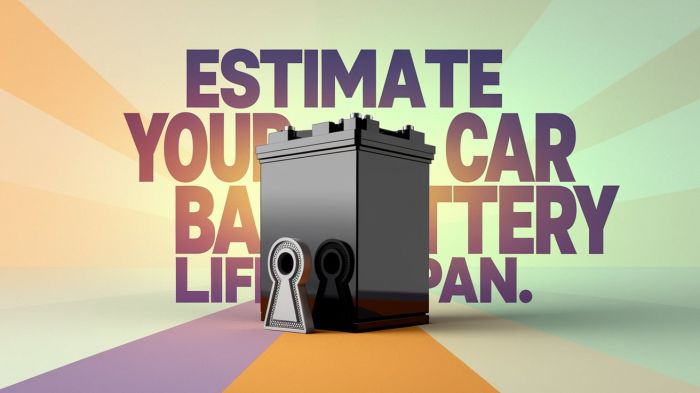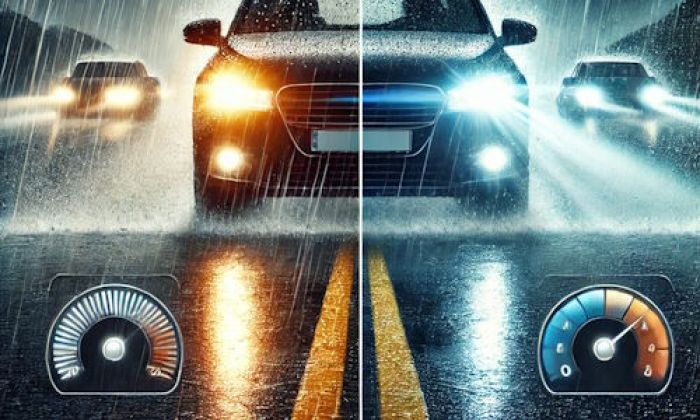Subaru cars are often thought to be extremely reliable. Many Japan cars fans say that they have seen a lot of Subarus with over 350,000 miles on the clock that were still looking like new. Is it true? Can every Subaru vehicle go half a million miles? These are the questions we are going to answer in our today's article.
We love Subaru cars and we want to warn you that in this piece we'll be criticizing the manufacturer a lot. But we should say that these vehicles are actually better than average. We just want to show you that even the cars that are as good as Subaru vehicles still have a lot of problems and can't be considered ideal.

Here's what we are going to tell you:
- Subaru engines - are they reliable?
- How many miles can Subaru transmissions go?
- What are the main problems with the high-mileage Subaru cars?
- Can you prolong the life of your Subaru vehicle?
- How many miles, on average, can a Subaru car go?
Let's get started!
Subaru longevity - what does it depend on?
All cars have certain problems that show up with some mileage. Once it's not economically correct to own a vehicle, we say that it should be recycled and a new car should be bought. It's really cheaper to get a new vehicle instead of a 400,000-mile Subaru that keeps breaking every single day and makes you spend thousands of dollars on repair.
The longevity of every Subaru car is determined by certain factors:
- the engine of this car;
- the transmission used in this vehicle;
- the drive type which is usually AWD;
- the body protection from rust;
- the interior quality;
- the suspension units longevity.
When one of these factors comes to its end, you can repair or replace the unit. But when they all start causing problems, it's really a good idea to sell your vehicle (maybe even as a salvage car) and buy a new one.
So, under the term "longevity" we understand the optimal mileage to own your car and not spend too much money on its maintenance.
Subaru engines' longevity - how many miles can they go?
When talking about engines' longevity, we consider the mileage that an engine can show up until it needs significant repair (pistons, valves, head, crankshaft). If you decide to invest a lot of money in your engine, it will go more. But in most cases, it's not a wise decision because other parts of the car will also fail soon.
So, the Subaru engines are not bad at all. We can think of three categories of engines: low-displacement turbocharged units, middle-displacement naturally aspirated engines, and also hybrid powerplants. Unfortunately, not much information is now available about hybrid engines to estimate their longevity. So, we won't talk much about them.
Regarding two other groups, here's what we think:
- The first group: turbocharged engines with a small displacement (up to 2 liters). These engines are not bad at all. They are cool in terms of power from 1 liter of displacement. But they will not live too long. The average lifespan of these engines is around 180,000 miles.
- The second group: naturally aspirated engines with big displacement. These are much better in terms of longevity. The majority of these engines can go up to 250,000 miles without major repairs and problems.
Subaru cars use all kinds of engines - l, V, and boxers. The configuration of the engines doesn't change the longevity much. But boxer engines which are an exclusive feature of the Subaru company are harder to maintain and service than traditional engines. Though, they prove to be more powerful and safer than other types of configurations.
We think that all modern Subaru engines are good. The company doesn't tend to downsize a lot of its engines and keeps using more advanced ecological equipment. Yes, it can also get on your nerves because repairing and cleaning this equipment is not easy and cheap at all. But it's better than driving an SUV with a 1-liter turbocharged unit under the hood (hello, Ford Ecosport).
What about the longevity of Subaru Transmissions?
Transmissions are also important units when we are talking about the longevity of the vehicle. And here, Subaru has some bad surprises.
First of all, we should say that all manual transmissions made by Subaru are superb. They can last up to 300,000 miles if other parts of your car will be able to live that long. But one problem should be considered - only 5% of Subaru cars are sold in the US with manual transmission.
Then, the majority of cars sold in the US now are equipped with CVT - continuously variable transmissions. Naturally, these transmissions live around 80,000 miles or a little more. Then, you can repair (if you are lucky) or just replace the transmission paying over $4500 for this.
And also, some vehicles are equipped with traditional automatic transmissions that are pretty durable. These transmissions will last up to 200,000 miles if you are lucky without the need to repair them. These units can be repaired even after total damage, so they are more practical and durable than CVTs.
By the way, quite often Subaru owners take normal work of their cars for problems and mistakes. Like with the "2 Hours from Ignition On" warning that I've written in another article. Please have a look if you want.
Subaru body - will it rust soon?
Subaru cars have somehow got the reputation of cars with a lot of rust issues. But we haven't noticed that these vehicles get more rust than any other ones. We know that rust is not a big deal when it forms on doors or a hood because you can replace these parts. But if you see rust on the frame, rear arches, belly, and other integral parts of the body, you are going to spend a lot of money.
Subaru cars have middle-quality protection against corrosion, so they will not live very long. We've seen that many owners say that their Foresters get corrosion (even perforations) after just 5 years. But you have to bear in mind that a lot of people use Foresters for off-roading, and these SUVs aren't made for very harsh roads.
Rust issues are still there because of the poor protection quality. Some people say it's now common for all vehicles just because car manufacturers don't want us to drive the same vehicles for too long - they want to sell us new vehicles every 5-7 years. Who knows, maybe it's true!
What are the common problems with high-mileage Subarus?
If you have or are planning to buy a high-mileage Subaru vehicle, you should know some important things to consider. Mainly, we are talking about common problems that happen with all Subaru cars. They are not unique, these problems can happen with any other car. But still, some of them often happen with Subarus.
We should say that these problems are not disastrous and you can solve most of them by investing a little money in your car.
Here are some common problems of the high-mileage Subaru cars:
- Fuel pump failure. You can think it's not a big deal, but you should check the price for an OEM fuel pump. You'll be surprised.
- Electronic pedals problems. Unintended acceleration is one of the popular problems of modern Subaru cars. And it actually happens often with high-mileage cars because of some electronic problems.
- Wiring problems. If wiring starts failing all the time, you will repair your car very often. What's more, it's pretty hard to locate a problem with Subaru wiring because the system is not simple at all.
- Starlink problems. The infotainment system of Subaru causes a lot of problems even in new cars. But when it's old and glitchy, it will just be a pain in your neck.
- CVT problems. Your CVT transmission is the most expensive unit that can fail because of the high mileage. Repairing a CVT transmission is not always possible, by the way.
- Boxer engine problems. Usually, boxer engines only show small problems like spark plugs failure or oil leaks. But repairing this engine is extremely hard because the location of the parts is unusual.
As you see, a lot of Subaru problems seem to be little until you start solving them. Repairing a Subaru car is a hard task and it usually costs a lot. But new Subarus or the vehicles with low mileage are very good and never let you down.
If you are about to buy a high-mileage Subaru, you should check it thoroughly and include your risks in the final price of the deal.
Final words
Subaru cars are durable. They are not bad at all, we can say that they aren't worse than any other Japanese vehicle you can buy. On average, a Subaru vehicle can go around 200,000 miles, depending on the engine type, transmission type, and some other factors. But we know Subaru vehicles that have already gone 350,000 miles and are still OK.
If you want to drive your Subaru vehicle for a long time, you should maintain it regularly and repair all problems once they show up.
About the authors
The CarAraC research team is composed of seasoned auto mechanics and automotive industry professionals, including individuals with advanced degrees and certifications in their field. Our team members boast prestigious credentials, reflecting their extensive knowledge and skills. These qualifications include: IMI: Institute of the Motor Industry, ASE-Certified Master Automobile Technicians; Coventry University, Graduate of MA in Automotive Journalism; Politecnico di Torino, Italy, MS Automotive Engineering; Ss. Cyril and Methodius University in Skopje, Mechanical University in Skopje; TOC Automotive College; DHA Suffa University, Department of Mechanical Engineering






Add comment